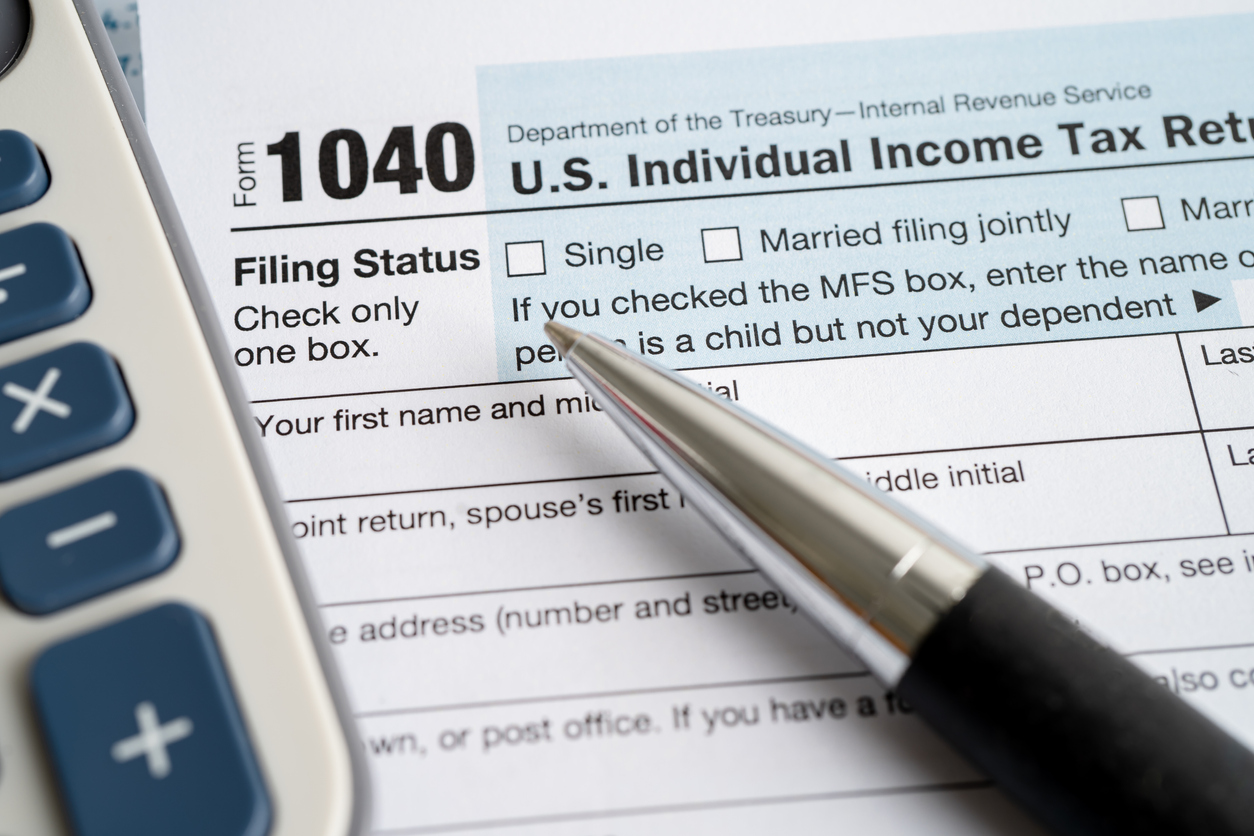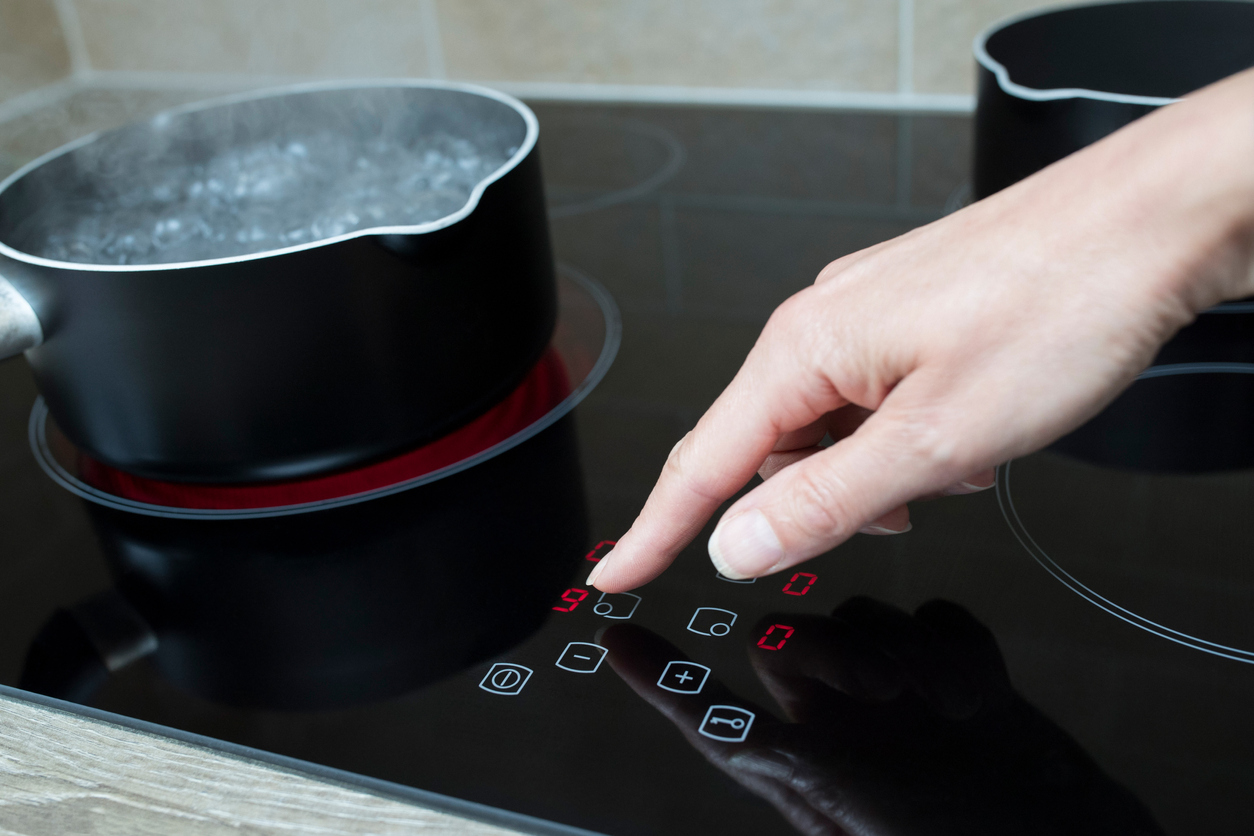We may earn revenue from the products available on this page and participate in affiliate programs. Learn More ›
When updating or improving a home, saving energy and money often are top of mind. With a tax credit, 2023 and 2024 home improvements are way more attractive. What’s more, some home improvements are eligible for both tax credits and rebates, so it’s wise for homeowners to do a little research to make sure they receive all of the perks to which they’re entitled. Passage of the Inflation Reduction Act in August 2022 adds to the tax credits 2023 filers can claim.
We talked with officials from the Department of Energy (DOE), and Leslie Jones, media and public affairs specialist for the Environmental Protection Agency’s Energy Star program, to clarify some of the incentives available to homeowners under the Inflation Reduction Act. Before you complete this year’s taxes, learn about rebates and tax credits, the types of projects that are often eligible, and what might change in 2024.
What are tax credits and rebates, and do I qualify for them?

Tax credits are controlled by state and federal governments to incentivize actions such as home improvements that conserve energy. Homeowners claim these credits when they’re filing their income taxes. For instance, a tax credit for installing solar panels can put 30 percent of the project cost back in homeowners’ pockets come tax time. “The Inflation Reduction Act provides multiple incentives to make energy-efficient upgrades to your home that will help you benefit from the clean energy future. This includes new federal income tax credits,” says Jones.
In addition to energy credits, homeowners can claim certain mortgage interest, home equity loan interest (to help pay for those improvements!), property taxes, and private mortgage insurance. Home buyers can claim discount points on a new mortgage. To find out which credits are available to you by state, visit the Dsire website.
Unlike tax credits, tax rebates on energy-efficient appliances are typically doled out through local power companies and appliance manufacturers in conjunction with the U.S. Energy Star program. “Additional income-based incentives, coming in 2024 through the Home Energy Rebates Program for States and Tribes, will be available in most states, depending on your income,” says Jones.
To learn about rebates available in your area, visit the Energy Star website. Some of the new incentives provided for in the Inflation Reduction Act include rebates administered by states, along with some that are deducted at the time of purchase rather than when you file your taxes. A tax professional can help identify retroactive credits and specifics by state.
What are tax deductions, and do I qualify for them?

Although some tax deductions and credits already were in place for home improvement and energy savings, the Inflation Reduction Act of 2022 upped the ante for reducing emissions and energy use. The law provides rebates and tax credits to build a clean energy economy, including various household tax credits aimed at lowering Americans’ carbon footprint. They took effect in 2023, and include qualifying energy improvements homeowners made throughout the year.
Some rebate and deduction amounts vary based on the filers’ income; taxpayers in the lowest income brackets may recoup 100 percent of certain expenditures. In addition, previous programs had lifetime limits on credits. Not so for 2023 through 2032. “One good thing about the home improvement credits is that there is no longer a lifetime cap—so, for example, households can get the maximum credit for efficient windows and a heat pump this year, and then add insulation and a heat pump water heater next year,” say DOE officials.
Most credits for improving home energy are up to 30 percent of the total cost for eligible improvements (up to $1,200 per year for some improvements, plus $2,000 additional for electric heat pump technology). The law also offers new rebates for qualifying energy-efficient appliances and heating or cooling units; these rebate programs will be run at the state level. If you’re eyeing a home upgrade or a big purchase and want to know whether it’ll provide you some tax relief, check the Clean Energy for All page on WhiteHouse.gov for updates.
1. Appliances

Energy Star-certified appliances use less energy than older and non-certified appliances: Their certified clothes washers, for example, use 20 percent less energy and 30 percent less water than regular models. The Inflation Reduction Act provides tax relief on the purchase of certified appliances like tankless water heaters through 2032. In addition, those who qualify as low- to middle-income families can receive rebates for energy-efficient electric appliances like electric heat pump dryers, electric stoves, or heat pump water heaters; the amount of relief homeowners receive depends on their income level.
Some local power companies, too, offer rebates as high as $150 to $400 on purchases of qualified refrigerators, freezers, dishwashers, clothes washers and dryers, dehumidifiers, and air purifiers. Before you shop for new appliances, it’s worth checking the Energy Star Rebate Finder to research available rebates in your area.
2. Doors, Windows, and Skylights

Replacing old, leaky windows, doors, and skylights pays homeowners back—twice. Federal tax credits for these improvements are higher starting with 2023. Energy-efficient exterior doors purchased in 2023 qualify for up to $250 of credit per door, up to a total of $500 for all doors. The annual 30 percent limit for qualifying windows and skylights applies to the products only (not installation) and is $600 per year; these improvements count toward the $1,200 per year limit. According to DOE officials, credits for these “home envelope improvements will be available through December 31, 2032.”
3. Insulation

Reducing energy leakage in a home’s “envelope” also is important. The Inflation Reduction Act credits up to 10 percent of the cost of sealing and insulating your attic, basement, walls, and foundation. Installation costs do not qualify for the credit. For 2023, homeowners can receive up to 30 percent credit within the annual limit for the cost of insulation materials. Insulation can save up to 20 percent on the cost of heating and cooling a home and improve interior comfort by eliminating drafts.
Some local utilities also offer rebates of up to $600 (which is often calculated by square footage covered) for installing new or additional insulation. Enter your ZIP code at Energy Star’s Rebate Finder to see if you qualify.
4. Electronics

Energy Star says that the average American household owns 24 consumer electronics products, and those gadgets are responsible for up to 15 percent of household electricity use. “There are currently no federal tax credits that are available for electronics,” says Jones. For the 2023 tax year, however, consumers can score rebates from local utilities or states of up to $150 on energy-efficient home electronics, including televisions, digital media players, telephones, computers, and tablets.
5. Lighting

Americans bought more than 500 million Energy Star-certified light bulbs in 2021. Switching to energy-efficient light fixtures, ceiling fans, and LED bulbs definitely pays off in lower energy bills, and you may even be able to get a bonus from your local utility company.
If you’ve got redecorating on the brain, be sure to check the “lighting” category under the Energy Star energy-efficient product list before going shopping. There, you can access a list of certified ceiling fans, light bulbs, light fixtures, and even string lights. Enter your ZIP code on the rebate finder and a lighting category in the search box to take advantage of local rebates for light fixtures, fans, and LED bulbs, and learn which specific green products might net you some green in return.
6. Heating and Cooling

“For the average American household, almost half of the annual energy bill goes towards heating and cooling–approximately $900 a year,” says Jones. That’s why replacing old furnaces, boilers, and air-conditioning units with newer, more efficient models can add up to substantial savings on energy bills. “Efficient heating and cooling is a key element of an Energy Star Home Upgrade, which is a set of six high-impact energy efficiency home improvement projects that are designed to work together to deliver significant energy and cost savings,” says Jones. Additionally, many of the included products qualify for federal tax credits and utility rebates “that help to lower the cost of purchase–so you can save on the project cost and also realize significant savings through your energy bill,” Jones adds.
Under the Inflation Reduction Act, households can claim up to 30 percent of the cost of buying and installing Energy Star-certified split systems or packaged air conditioning systems, up to a maximum of $600. The credit also applies to hot water boilers and gas furnaces with the Energy Star certification.
7. Electric Heat Pumps

To encourage use of alternatives to even energy-efficient HVAC systems, the Inflation Reduction Act includes a special credit for certain super-efficient heat pumps. This covers 30 percent of their cost up to a $2,000 credit per year for the heat pump and installation (separate from the $1,200 limit for other upgrades). In addition, if adding a heat pump requires electrical upgrades, up to $4,000 in rebates are available per household.
Beginning in 2023, low- and moderate-income buyers might qualify for the credit at the point of sale, which avoids having to pay all of the costs up front, along with state programs that might cut the costs of installing heat pumps by up to $8,000.
8. Water Heaters

Water heaters are big energy hogs. They account for up to 18 percent of the energy used in a typical home, but many newer types of water heaters save both energy and water. Tax credits of up to $2,000 are available on qualified heat pump water heaters. Solar water heaters, and tankless and gas models with Energy Star certification qualify for a 30-percent, $600 maximum credit.
9. Home Office Equipment

With so many Americans now telecommuting and working flexible schedules, more and more Americans have carved out designated home offices. Those who work at home and are self-employed or independent contractors are eligible for a home office tax deduction and certain office equipment write-offs.
Unfortunately, since 2018, telecommuting employees have not qualified for the deduction. Still, remote workers who purchase certain computers and monitors may qualify for rebates of up to $15 from their local utility companies.
10. Renewable Energy Sources

The Inflation Reduction Act lets homeowners claim up to 30 percent of the cost of adding certain solar, wind, geothermal, and similar technologies to their home. The act also covers up to 30 percent of battery costs for renewable energy storage.
The renewable energy credits have no income restrictions and last through 2032. According to DOE officials, taking the 30-percent credit off rooftop solar unlocks “savings of $9,000 for the average household over the lifetime of the system, or nearly $400 per year.”
11. Electric Vehicles

Under the Inflation Reduction Act, buyers of certain U.S.-assembled electric vehicles can gain from a tax credit. So, in addition to saving on gasoline, EV owners can get up to $7,500 in tax credits in 2023. Specifics involve matters like vehicle sourcing and household income. “Starting in 2024, in order to qualify for the Clean Vehicle Credit, battery components in new clean vehicles cannot be sourced from a foreign entity of concern,” say DOE officials. The income cap ranges from $150,000 for single filers to $300,000 maximum income for married couples filing jointly.
For 2023, the credit goes on your tax return. Beginning in 2024, it gets easier. According to DOE, clean vehicle buyers can “transfer the tax credit to the dealer, allowing the dealer to take the equivalent amount directly off the price of the vehicle at point of sale.” This way, buyers won’t have to wait to file taxes to reap the benefits of the credit. In addition, the act reinstated a credit of up to 30 percent of the cost of a home EV charger, up to $1,000.
Used clean vehicles also might qualify for up to $4,000 in tax credits. Not all electric vehicles qualify for tax credit under the new program. Check to ensure the vehicle you want qualifies. Beginning in 2023, certain fuel-cells vehicles also qualify for the credit. Check with the manufacturer to determine whether one or more cells convert energy by combining oxygen and hydrogen fuels.
12. Ongoing Home Improvements

One of the greatest incentives in the Inflation Reduction Act is suspension of a lifetime credit. In the past, once a taxpayer used $1,200 in qualifying credits, they were done. The new law makes it easier to replace items as they break with more efficient alternatives or to spread the cost of home (and energy) improvements over several years, with a $1,200 credit available annually beginning in 2023.
In addition to credits for replacing appliances and systems in a home, an upgraded breaker box and similar retrofitting activities that save at least 35 percent of energy use qualify under the Inflation Reduction Act for a tax credit of up to $4,000 if their purpose is to improve whole-home energy efficiency. To help plan for ongoing improvements, the DOE has created the Energy Savings Hub, “which is a one-stop shop for consumers interested in cutting their monthly energy costs, making their home safer and more comfortable, and reducing carbon pollution,” say agency officials.
13. Electric Stoves

Although plenty of energy-efficient appliances qualify for credits or rebates with Energy Star and under the Inflation Reduction Act, electric induction stoves are getting some special attention. Recent studies have found that gas stove emissions not only add to climate change, but also have raised health concerns. Poor ventilation when cooking is one concern, but up to three-fourths of the methane emitted by gas stoves comes out when they are not even in use.
Replace a gas stove with an electric cooktop or range and receive a rebate of up to $840 through a program that helps states provide the incentives. The law also offers an additional $500 credit to reduce the costs of switching from natural gas or propane to electric cooking power. As of January 2024, many states were still setting up their Home Efficiency Rebate programs, and the Department of Energy has a state-by-state listing of their progress.
14. Home Energy Audit

If you want to make smart decisions about how to use tax credits, rebates, and your hard-earned money, a home energy audit makes sense. Unless you already have plenty of smart-home features, it’s tough to troubleshoot high energy use. “If consumers are not sure what’s best for their home, the IRA also creates a $150 tax credit to help pay for a home energy audit, say DOE officials.” The home energy audit must be conducted by an inspector. Beginning in 2024, an inspector must be certified under an approved Department of Energy program and the professional must provide the homeowner a written report.
To keep a better handle on costs long-term, invest in a smart thermostat to monitor and control heating and cooling energy. Many energy companies offer mail-in rebates of $50 to $200 for those who purchase and install smart thermostats.









